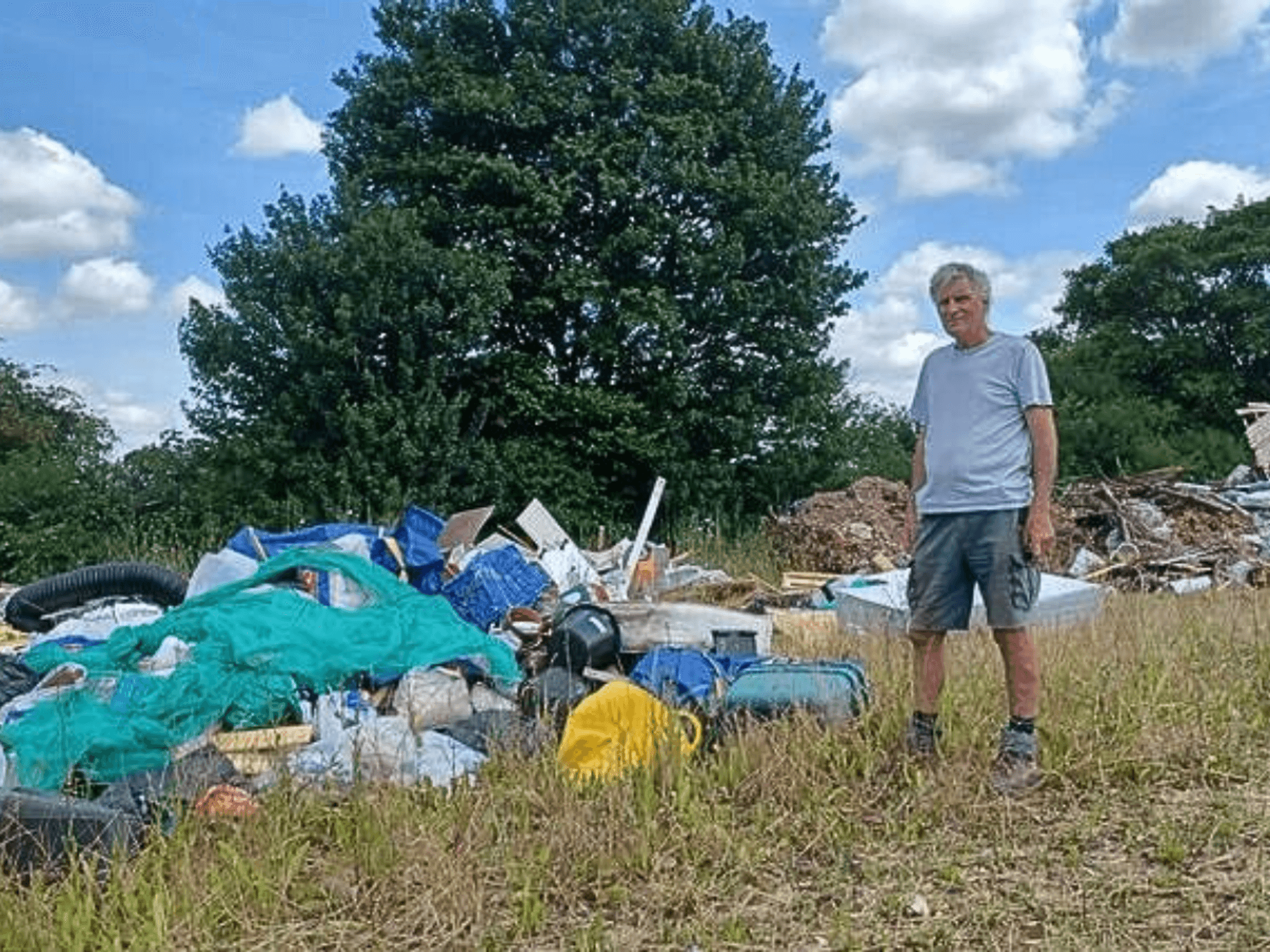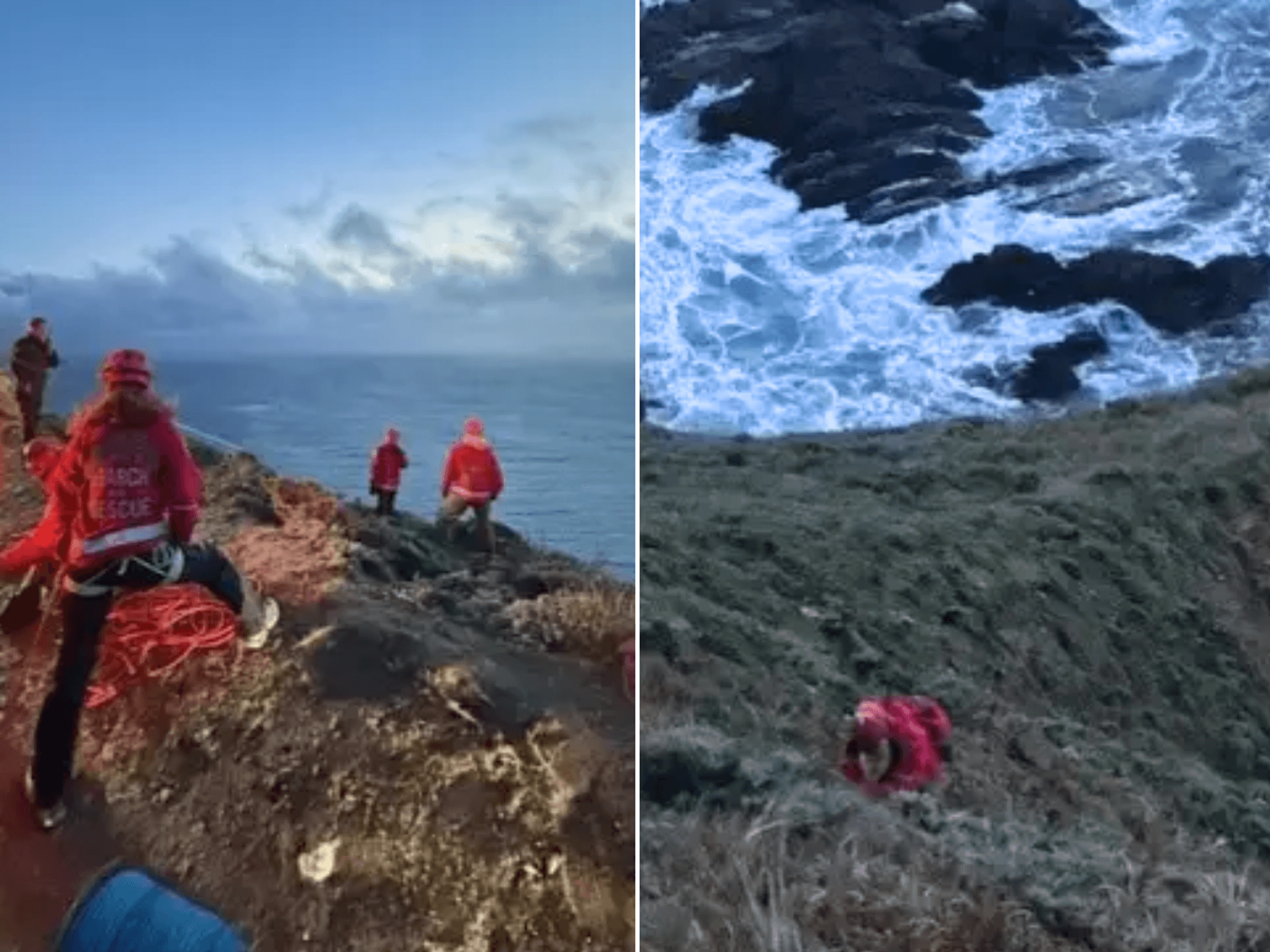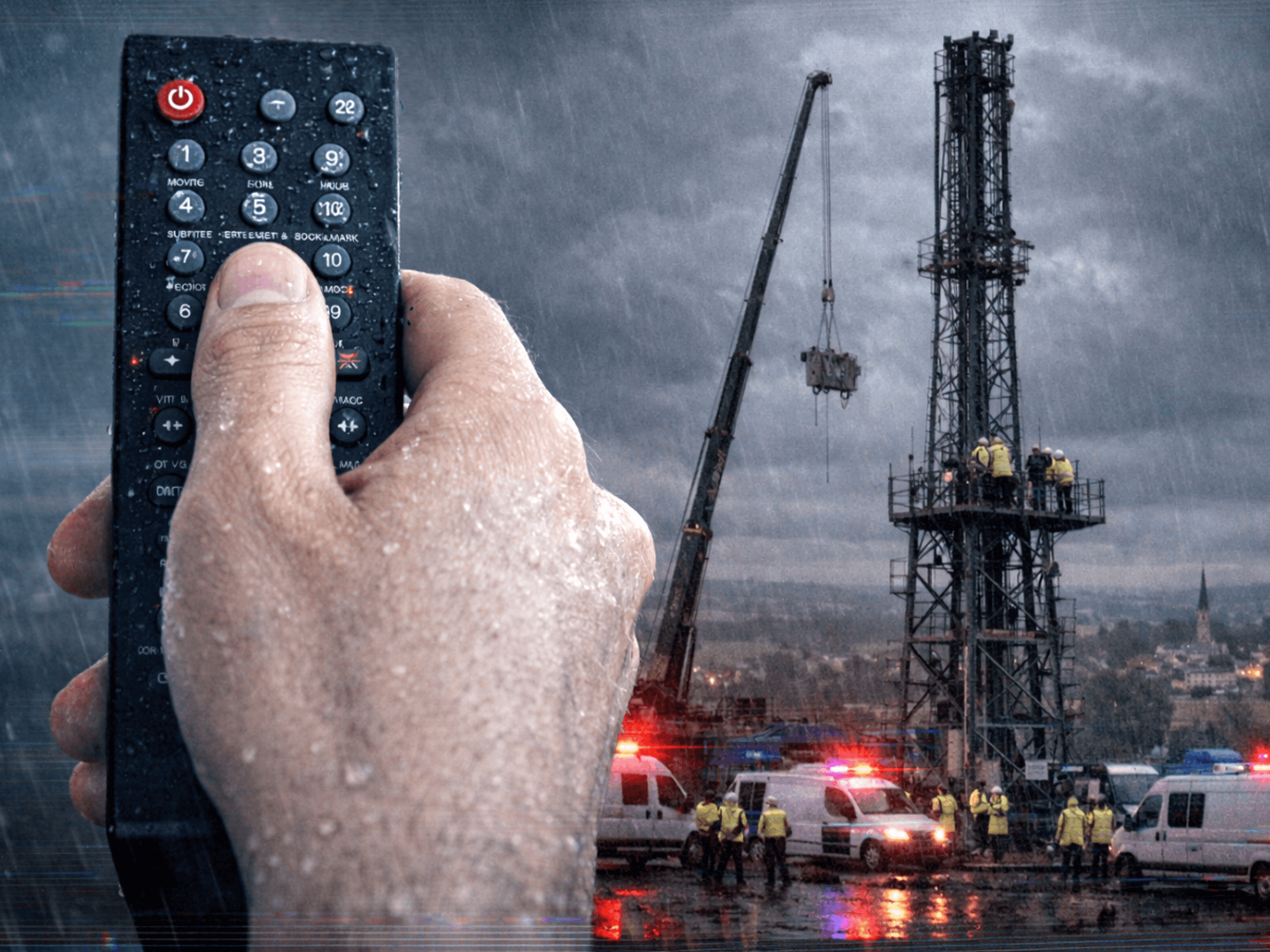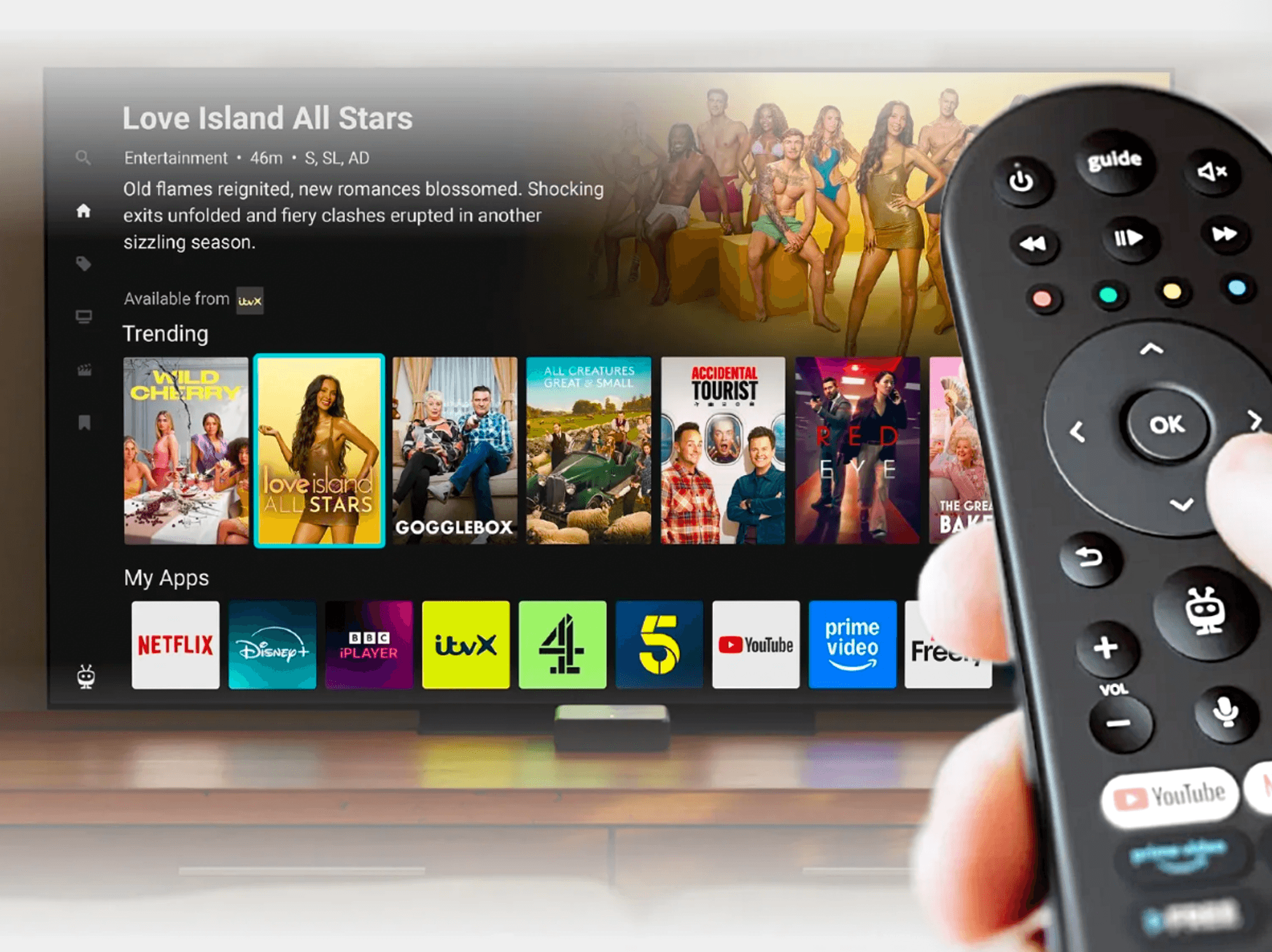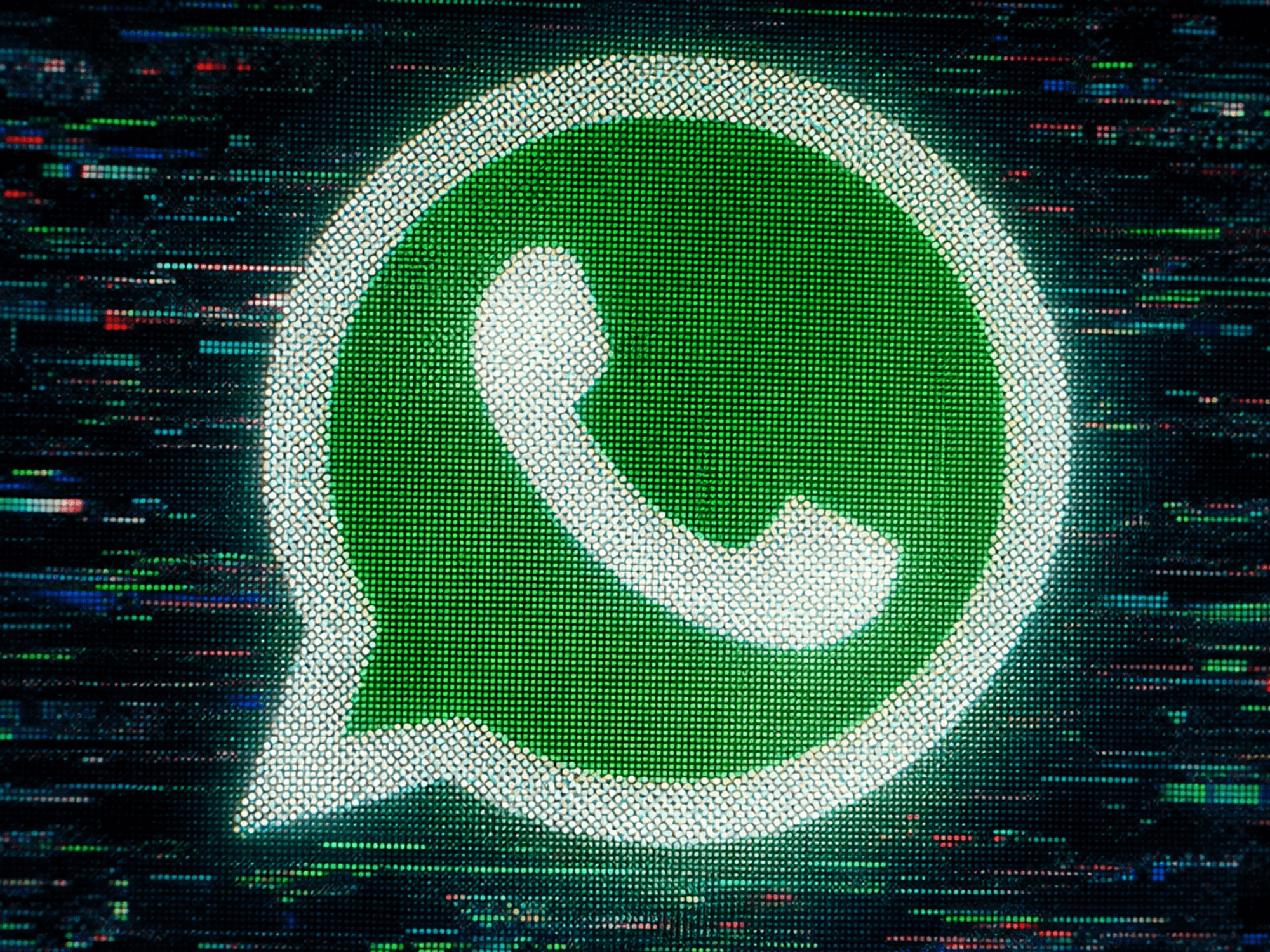BT trialling new ways to keep your traditional landline phone working ahead of UK switch-off in 2027
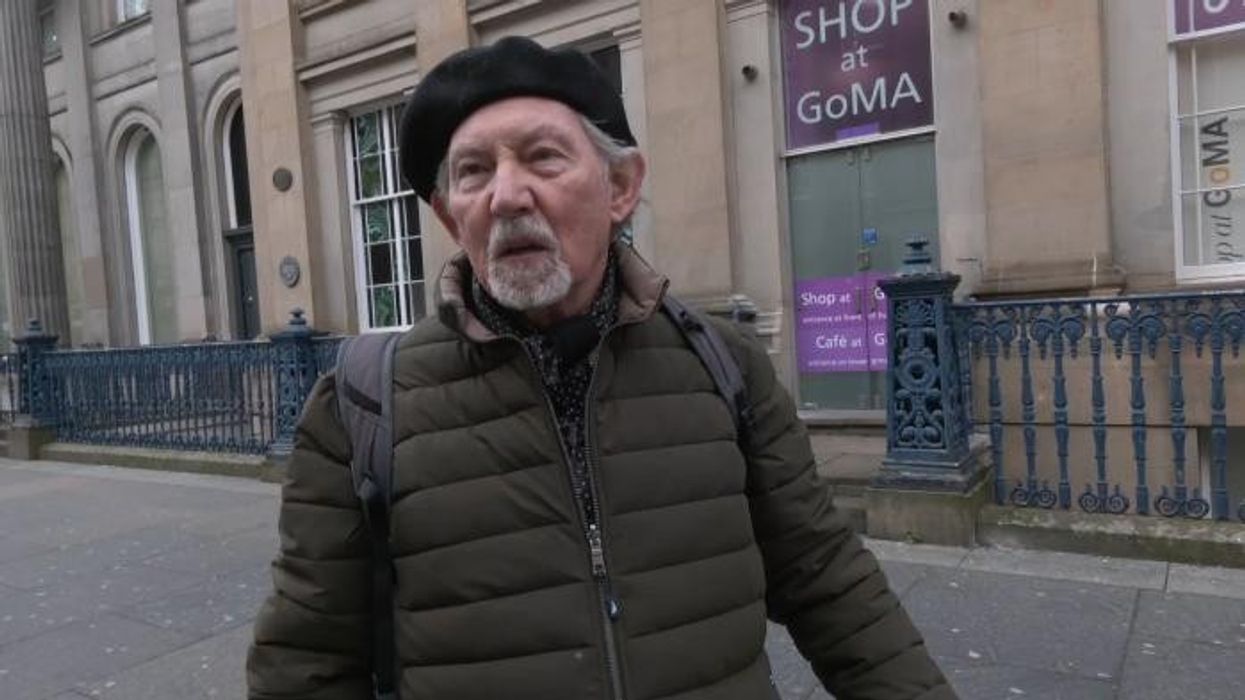
GB News' Tony McGuire asks the public if they still use their landline phones
|GB News
New step could ease transition as UK prepares to shut down telephone network by January 31, 2027
- Openreach has launched a new pilot scheme to transition to digital landlines
- It's designed to make it easier to switchover
- You won't even need to unplug your existing landline phone
- This is one of two different migration paths being investigated
- UK prepares to shut down its telephone network by January 31, 2027
- After that, Openreach will shutter its telephone exchanges in 2030
Don't Miss
Most Read
Latest
Keeping your landline as the UK transitions away from traditional phone lines could be about to get much easier.
Openreach has launched a long-awaited pilot scheme designed to make the switchover to digital services less disruptive. This trial can't come soon enough, as the UK prepares to shut down its telephone network by January 31, 2027, affecting millions of telephone lines.
BT, Virgin Media, TalkTalk and other telecom companies are in the process of switching off 14 million or so copper-based phone lines across the UK that Brits have been using to make calls since 1911. With this century-old system gone, you’ll need to make your calls using a broadband-powered alternative known as Voice Over Internet Protocol, or VoIP.
**ARE YOU READING THIS ON OUR APP? DOWNLOAD NOW FOR THE BEST GB NEWS EXPERIENCE**
If you’ve ever made a call over Wi-Fi to friends or family on WhatsApp, Skype, or Messenger, then you’re already familiar with VoIP technology. BT, Virgin Media, and TalkTalk refer to this internet-powered landline as “Digital Voice”, but your provider might use a different term.
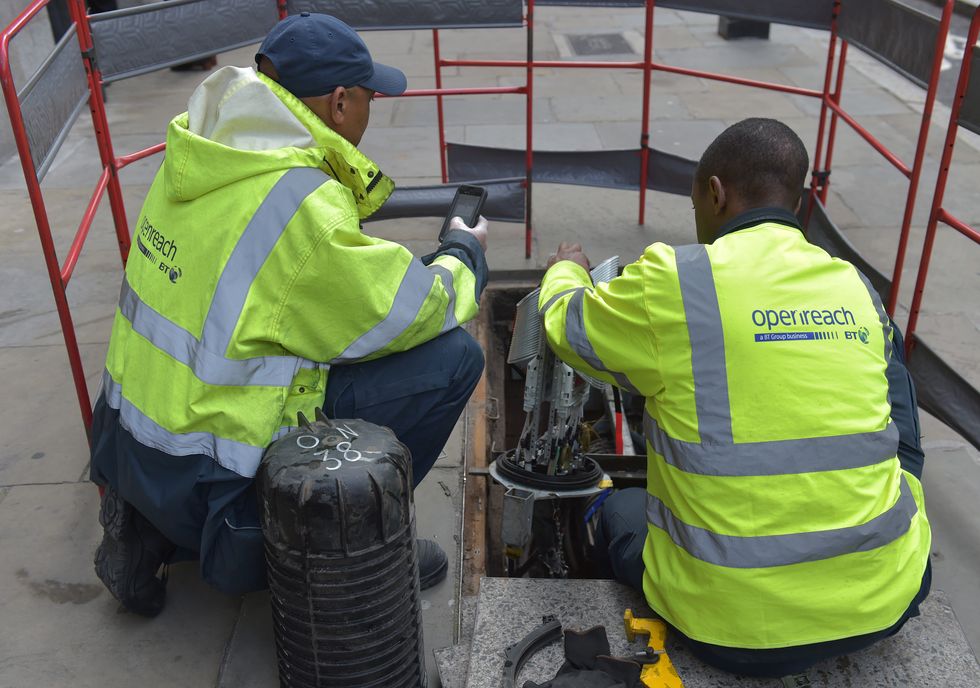 Fibre broadband engineers from Openreach, the infrastructure arm of BT work on a fibre cable junction in central London | PA
Fibre broadband engineers from Openreach, the infrastructure arm of BT work on a fibre cable junction in central London | PAWhy is the UK transitioning from traditional phone lines to digital services?
Openreach's migration plan ahead of the UK switch-off has been a long time coming.
Plans for a UK-wide landline switch-off were first announced back in November 2017. It's worth emphasising that this is not a Government scheme or deadline; the proposal came from the industry itself.
At the time, industry heavyweights said they were struggling to find parts to maintain and repair analogue phone lines as few companies are still making the components used by this century-old system.
But it’s not just about the nuts and bolts to keep landlines working. As you already know, if you’ve used WhatsApp to chat to someone on the other side of the planet, all-digital calls can offer much clearer calls, especially over longer distances.
Calls via fibre-optic cable are also less likely to be impacted by bad weather, since this technology is immune to several environmental factors, like temperature and electromagnetic fluctuations, that negatively impact copper cables.
Not only that, but features you’d usually associate with your mobile phone, like blocking calls from withheld numbers or putting incoming calls in a queue when you’re already talking on the phone, are all possible with these broadband-powered landlines.
While the original deadline for the switchover was set for late 2025, it was later revised following a slew of issues, which saw BT customers lose access to the landline number they’d held for 50 years, others stranded without a landline connection for days, and a small number of vulnerable people with personal safety alarms left unable to contact emergency services.
Telecom brands decided to temporarily suspend upgrade works while they worked on a new set of guidelines in conjuction with the UK Government to guarantee vulnerable people with alarms will never be left without a working device during the switchover process. Upgrade works have since resumed under these new rules.
And BT-owned Openreach is also looking at new methods to minimise disruption to those who want to keep their traditional landline.
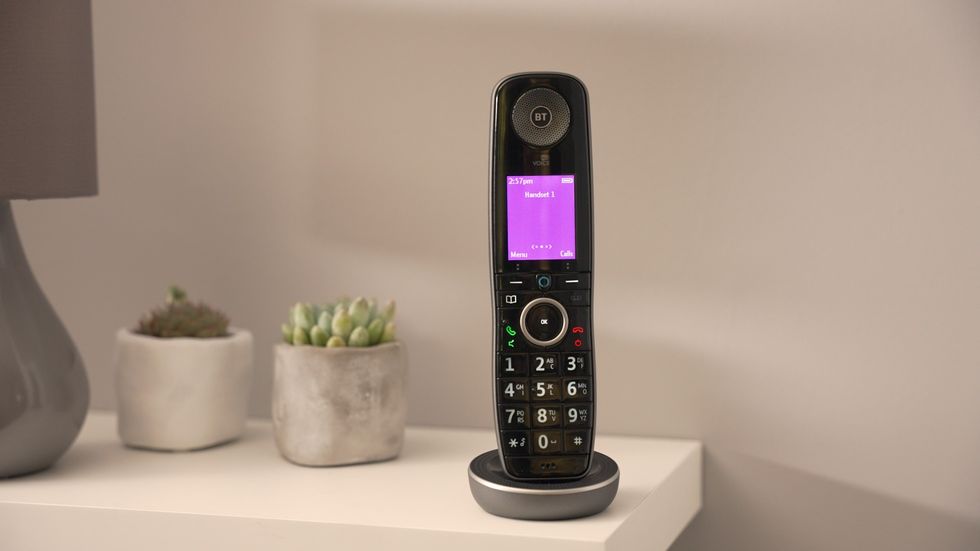 Digital Voice handsets, pictured here, connect to the back of the Wi-Fi router supplied by your broadband provider and route calls over the internet — not a traditional phone line | BT PRESS OFFICE
Digital Voice handsets, pictured here, connect to the back of the Wi-Fi router supplied by your broadband provider and route calls over the internet — not a traditional phone line | BT PRESS OFFICE Openreach trials new methods to keep your landline
To ease the switchover ahead of the deadline, Openreach is trialling a few different methods for those who may need an extra hand with the switch to modern phone systems.
The first is known as Standard SOTAP, or Single Order Transitional Access Product, which is still an internet-powered solution, but it's designed for areas where full-fibre services aren’t yet available. It still replaces the copper phone line and will most likely be a temporary fix while Openreach continues to roll-out its full-fibre broadband nationwide.
Key features include:
- Broadband-only service over copper lines
- No analogue voice service
- It's intended as a temporary solution until full fibre rollout is complete
- Offers speeds up to 17 Mbps, though actual speeds may vary
The second is known as SOTAP for Analogue, also known as Pre-Digital Phone Line. This is a landline that does require an active broadband connection and works just like a traditional copper landline.
SOTAP for Analogue could enable homeowners with personal alarms that are incompatible with new broadband-powered phone lines or those who don't want a broadband connection but still need a landline.
Confused? You're not alone. Here's a summary of the differences between these two methods from Openreach to keep everyone connected during the UK transition.
Feature | SOTAP (Standard) | SOTAP for Analogue |
Purpose | Broadband replacement for traditional copper cable-powered internet | Preserve analogue phone functionality |
Requires broadband | Yes | No |
Supports voice calls | Via VoIP only | Yes, like traditional landlines |
Works during a power outage? | No | Yes |
Target users | Areas without fibre broadband yet | Vulnerable users who still need an analogue landline |
Availability | Commercial rollout in progress | Pilot phase as of May 2024 |
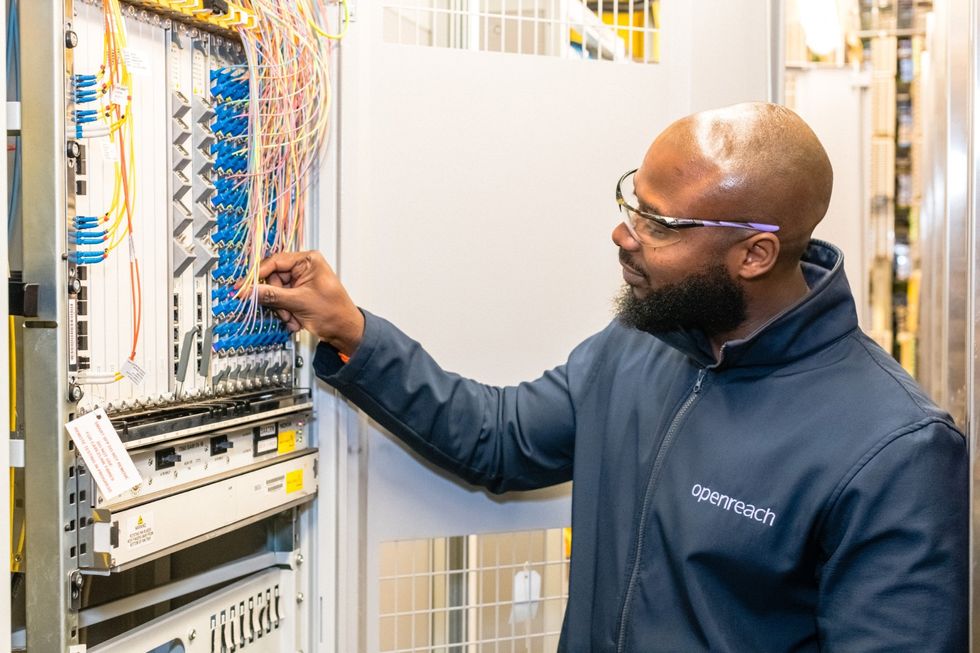 Engineer switches households to fibre-optic technology so they can experience much clearer calls, especially over longer distances | OPENREACH PRESS OFFICE
Engineer switches households to fibre-optic technology so they can experience much clearer calls, especially over longer distances | OPENREACH PRESS OFFICE SOTAP for Analogue works just like your current landline does today. You won't need broadband internet, new equipment, or an engineer to visit your home to set it up.
This special service operates through your local telephone exchange, but behind the scenes, it relies on modern technology.
It does this by linking the existing copper wiring from your household to the telephone exchange, where it connects to a digital voice network. This allows customers to continue using their existing analogue handsets and potentially other equipment that relies on the analogue signal, even though the underlying technology is digital.
The system replicates how your traditional phone works now, so you can continue using it exactly as you always have. This means your existing handset will still plug into the wall socket, and you won't need to learn how to use new devices or worry about internet connections affecting your calls.
Standard SOTAP won’t work in a power cut, but the Pre-Digital Phone Line (or SOTAP for Analogue) will still make calls. Crucially, neither will work if there’s a broadband outage.
The pilot programme is expected to run for six months and aims to complete 10,000 customer migrations. One thing to note, though, is that if you opt for the Pre-Digital Phone Line, your provider will charge an additional £6 for the special support.
Support for households facing extra challenges in the digital switchover
BT-owned Openreach's new initiatives are particularly important if you're without a broadband connection at home, live in an area with no mobile signal (as back-up should the Digital Voice line go offline), or wear healthcare pendants that require a landline — as these factors mean you'll likely find the transition more complicated.
Your phone company will identify whether you qualify for this enhanced migration service based on your current setup. They remain responsible for ensuring you have appropriate safeguards in place during the switch.
The trial will also help determine how quickly these special migrations can happen and what operational support you'll need when the full switchover begins.
The pilot doesn't currently cover certain areas, including Hull, the Isles of Scilly, or the Scottish Highlands and Islands. If you live in these regions, different arrangements may apply to your phone service transition.
However, you should know that this special Pre-Digital Phone Line service is only a temporary measure, unlike utilising the Standard SOTAP method, which can act as a more permanent solution. If you haven't got access to full fibre broadband by 2027, you'll still be able to add a digital phone service to your existing internet connection. Openreach plans to close its old telephone exchanges from 2030 onwards.
LATEST DEVELOPMENTS
Countdown to the death of traditional copper landlines
1992 – Introduction of the first dial-up internet service to UK customers, Pipex
2000 – First UK home broadband launches in the UK ...and is taken up by a single customer in Essex
2008 – First residential full-fibre broadband connection goes live in a housing development in Ebbsfleet, Kent. It becomes the first place nationwide to use fibre-optic cables directly to the home, with telephone services and broadband delivered over the same cables
2010 – Services with speeds of 30Mbps (megabits per second) are sold in the UK. With this rate of speed, internet users can download or stream music, games or TV shows
2013 – The first ‘fibre only’ exchange goes live in Deddington. The Oxfordshire village was chosen as a pilot location for the first fibre-only exchange
2018 – Plans to retire the old telephone network within seven years are announced. This will see everyone in the UK upgraded to a digital phone line, laying the foundations for the future
2019 – Salisbury becomes the first "Openreach Full Fibre" city in the UK. The Wiltshire city has the fastest citywide network in the UK
2020/23 – Openreach ends the sale of copper landlines, beginning at an exchange level and then nationally. From September 5th 2023, BT customers across the UK could no longer buy traditional phones
2027 – Retiring the old analogue phone network. By this time, everyone in the UK will be upgraded to a digital phone line – which will use the broadband network to make calls in a similar way to other Voice Over Internet Protocol (VOIP) technologies like Skype, Facetime, and Microsoft Teams
More From GB News





